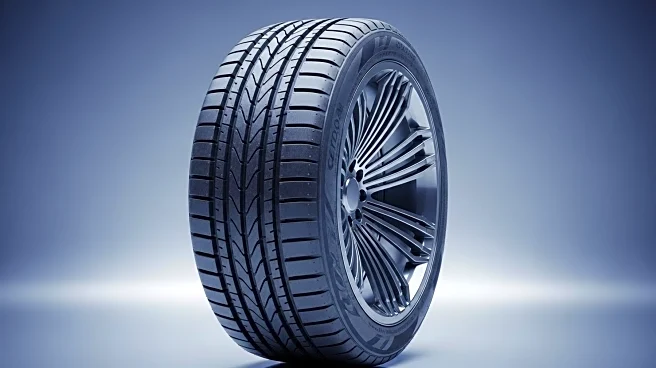What is the story about?
What's Happening?
Michelin is leveraging advanced technologies such as AI and 3D printing to revolutionize tire manufacturing. Matthew Cabe, head of Michelin North America, discusses how these tools have accelerated tire development, allowing for faster simulations and unlocking new creative possibilities. The company is focusing on enhancing tire performance across various conditions, including all-weather capabilities. AI is used to analyze large data sets, identifying patterns that can lead to innovative solutions. 3D printing is enabling the creation of complex tire designs and sustainable products, such as the Vision tire concept.
Why It's Important?
Michelin's adoption of AI and 3D printing represents a significant shift in the automotive industry, emphasizing the role of technology in enhancing product performance and sustainability. By improving tire design and manufacturing processes, Michelin aims to meet consumer demands for better safety, efficiency, and environmental impact. This approach not only positions Michelin as a leader in tire innovation but also sets a benchmark for other companies in the industry to follow. The integration of AI and 3D printing could lead to more personalized and adaptable tire solutions, benefiting both consumers and the environment.
What's Next?
Michelin plans to continue exploring the potential of AI and 3D printing in tire development, focusing on creating products that offer 'Total Performance' without compromising on any aspect. The company is also looking at expanding its sustainable tire offerings, such as the Vision tire, which could redefine industry standards. As Michelin advances its technology-driven approach, it may influence broader trends in automotive manufacturing, encouraging other companies to adopt similar innovations.
Beyond the Headlines
The use of AI and 3D printing in tire manufacturing raises questions about the future of traditional manufacturing jobs and the skills required in the industry. As technology becomes more integrated into production processes, there may be a shift towards more tech-oriented roles, impacting workforce dynamics. Additionally, the focus on sustainability aligns with global efforts to reduce environmental impact, highlighting the automotive industry's role in addressing climate change.















